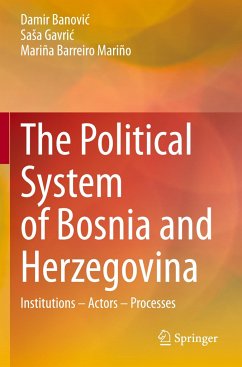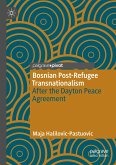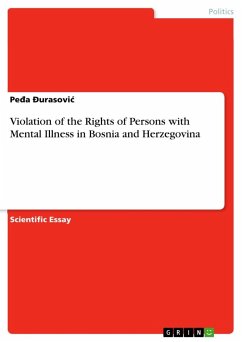This book is an introduction to the basics of Bosnian political structure, institutions, and political processes. Twenty-five years after the Dayton Peace Agreement ended the Bosnian war, the political process still maintains various levels and divisions among political entities. A transitional, post-conflict, divided, multicultural, state-building society, Bosnia and Herzegovina represents a complex and unique political system through which a myriad of topics can be studied. Applying multidisciplinary and interdisciplinary methodologies, the book presents a descriptive analysis and critical evaluation of the various aspects of the political system of Bosnia and Herzegovina.
The chapters address various aspects of the political system, such as institutions and state building, the legal system and the post-war constitution, as well as an examination of Bosnia and Herzegovina's place in the international community and their relationship with European Union and NATO. Providing a holistic view of the development, politics, and policy of this unique state, this book will be ideal for students studying the contemporary history of Bosnia and Herzegovina, as well as students and researchers of political science, international relations, and development.
The chapters address various aspects of the political system, such as institutions and state building, the legal system and the post-war constitution, as well as an examination of Bosnia and Herzegovina's place in the international community and their relationship with European Union and NATO. Providing a holistic view of the development, politics, and policy of this unique state, this book will be ideal for students studying the contemporary history of Bosnia and Herzegovina, as well as students and researchers of political science, international relations, and development.








